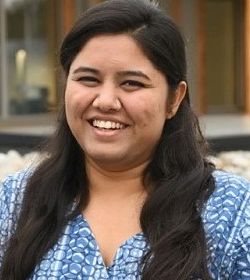
Co-founder of Kipple, Ismat Imaan, on the circular economy, and questioning the ‘very inevitability of waste’
"We want to question the very inevitability of waste"
Kipple creates ‘shareable, sustainable starter kits for students’. It was co-founded by Ismat Imaan and Jana Belovicova, both Masters graduates who met at UEA in 2018 and founded the company that summer. Now based in the Enterprise Centre on campus, Kipple is going from strength to strength.
Various companies provide starter kits for students, which include kitchen essentials such as pots and pans, cutlery, and cooking utensils. But where all other UK companies sell these kits, and many of these end up being dumped at the end of the year, Kipple rents the kits out, collects them when they’re no longer needed, has them professionally refurbished and then re-rents them, reducing the amount of waste generated.
In December 2019 Ismat told us where the inspiration for the company came from, what the future looks like for Kipple, and how they’re trying to inspire wider industry change.
It all started with a five year old pen…
I studied Environmental Assessment and Management, but UEA is very flexible on what you can study so I decided to do a module in international development*. And it was there that I met Jana (Jana studied International Social Development). We instantly became friends. One of the first things I noticed was how careful she was with her things. I borrowed a pen from her and when she asked for it back at the end of the lecture she told me it was five years old. When she buys something, she said, she wants to invest in it, and try not to create waste. I have a background in waste management – so bells are going off of course! Here was someone who is truly conscious of her consumption.
The idea for Kipple came to us on one of our walks around campus…
After the undergrads had left campus in summer 2018 we were walking around campus and came across all these piles of things the students had left behind or thrown away. We went to investigate (thanks to a job in waste management in India I’m very comfortable with going through trash cans and horrifying everyone standing nearby!) and almost all, maybe 85% of what was there was all perfectly usable. A lot of it is donated, but we did some research and discovered that many charities don’t have the capacity to use it all as it comes in such volumes, so it ends up being dumped anyway. We were in shock.
The dark side of the ‘Marie Kondo’ effect…
Some people simply don’t have capacity or space to move or store these things. International students in particular simply can’t take them things home. But whether it’s going into a bin or being donated the thought is the same: ‘I’m getting rid of this.’
A lot of people in environmental science have been talking about the Marie Kondo effect, the minimalist approach to living where you throw out everything you feel you don’t need. But there’s a ‘waste end’ to this minimalist living. A lot of people are getting rid of their clutter and then creating these mountains of waste, and sometimes it’s only a short term de-cluttering, and in a year that start buying things all over again. So you get into a cycle: buy, use and throw; buy, use and throw.
We don’t want to just sell the product. We want people to buy into the idea…
We want to question the very inevitability of waste. Can we stop it before it becomes waste? We are a unique business in that we’re in an industry where linear consumption is the norm. And the bigger vision is to support enterprises who have social and environmental values and goals.
Systems are not designed for a circular approach. Our vision is to change that, and help ensure businesses like ours can become the norm, and businesses that pollute the environment, don’t have the right human rights standards and don’t work with the supply chains to be sustainable are not the norm.
We’ve received support from the Enterprise Centre, which has been key…
UEA is one of the few universities that has resources for graduates to use up to five years after graduation. We wouldn’t be where we are without it. There’s funding, which we’ve benefited from – a ‘Do It’ £2,000 grant from Santander Universities and then a further ‘Grow It’ £7,500 from the UEA Enterprise Fund. But just as important is the mentorship, resources, confidence building, and help creating networks in the community. We have a lot that we’ve been able to access.
The skills we learnt during our Masters have helped us in business…
I learned to think systematically about a situation and decide if a risk is significant or not and then work out how to mitigate it. I didn’t think that way before. And now everything I think about I do it that way. That would be finance, risk analysts, market research. When you run an enterprise, every day is a new day; I’ve used the skills I learnt in my degree every day.
Ismat Imaan graduated with an MSc in Environmental Assessment and Management, in 2018. You can find out more about her business, Kipple, here: www.kipple-uk.com


:focus(1875x990:1876x991))